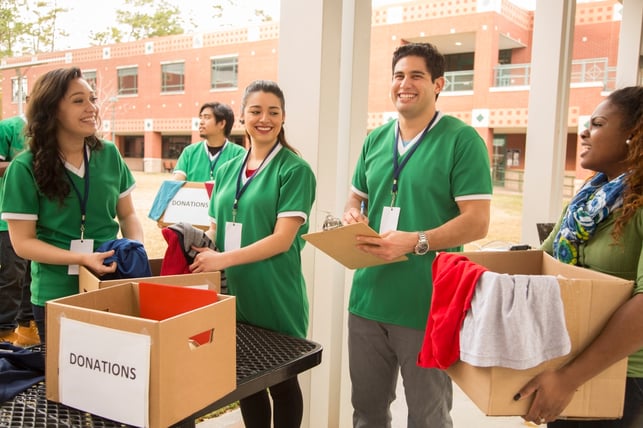
Some boarding schools offer excellent opportunities for students to get involved in service-related activities. Similarly, many boarding schools provide ample opportunity to combine community service with a high school curriculum. Combining community service into the regular routine of a high schooler’s schedule is a poignant teaching tool for the maturing adolescent.
So what are some of the benefits of community service?
Community service teaches high schoolers respect for others.
Through service learning experiences, students deepen their respect for others. This respect stems from their awareness of the challenges faced by those they serve, because of poverty, homelessness, disability, and other hardships.
Through community service, high schoolers have opportunity to recognize the impact they can have on the lives of others. When immersed in the daily grind of school, it is difficult to understand the impact one can have the lives of others. But when a student engages in a service experience, he has the chance to see first-hand how his service can improve the life of another.
Community services can change high schoolers’ world perspectives.
Through community service, students can grow to see the world in a new way. They might learn about assumptions they held previous to the service opportunity and change their worldview based on their new experiences.
By putting a ‘face’ on various social issues, students’ worlds and perspectives are broadened.
Community service gives high schoolers confidence.
Sometimes diving into a community service experience can be overwhelming or intimidating, because young adults don’t always know quite how to interact in a new situation. After an experience or two at Special Olympics, a nursing home, soup kitchen, or homeless shelter, they recognize that the brothers and sisters they are serving are not so different from themselves.
By participating in new experiences, high schoolers can experience a sense of confidence and pride for their service work.
Community service may lead to some vocational inspirations.
Trying various experiences of service could lead to some interests in a career path: Volunteering at a hospital might lead a student to pursue health care; serving at a homeless shelter might open a student to consider social work, doing housing rehab might lead to a career in the trades.
Community service gives students an opportunity to freely investigate possible vocational choices while helping others at the same time.
Community service helps to improve life skills.
Being involved in service experiences can begin to develop skill sets that high schoolers can use in a variety of practical settings. Interpersonal skills like listening and communicating are important to learn when engaging in community service and that can transfer over into practical life skills. And similarly, critical-thinking skills like planning and troubleshooting a project and problem solving are both things a student can gain from service experiences.
Community service can help young people to understand social change.
An important component of community service is to reflect on the experience from a social point of view. When students hand out food at a food pantry, they understand they are being charitable and helping out the hungry. And when they ask the question, “why are there hungry people in our community?” they begin to engage in a social discourse.
Asking questions is an important step in a young person’s development, and community service can help to inspire those questions surrounding social change.
Community service is a multifaceted experience for the high school student. Through service to others, high schoolers learn respect, improve the quality of life for some, learn new skills, share gifts, and above all, build and strengthen relationships. Through such experiences, young adults find the opportunity to transform themselves, and the world, one encounter at a time.

